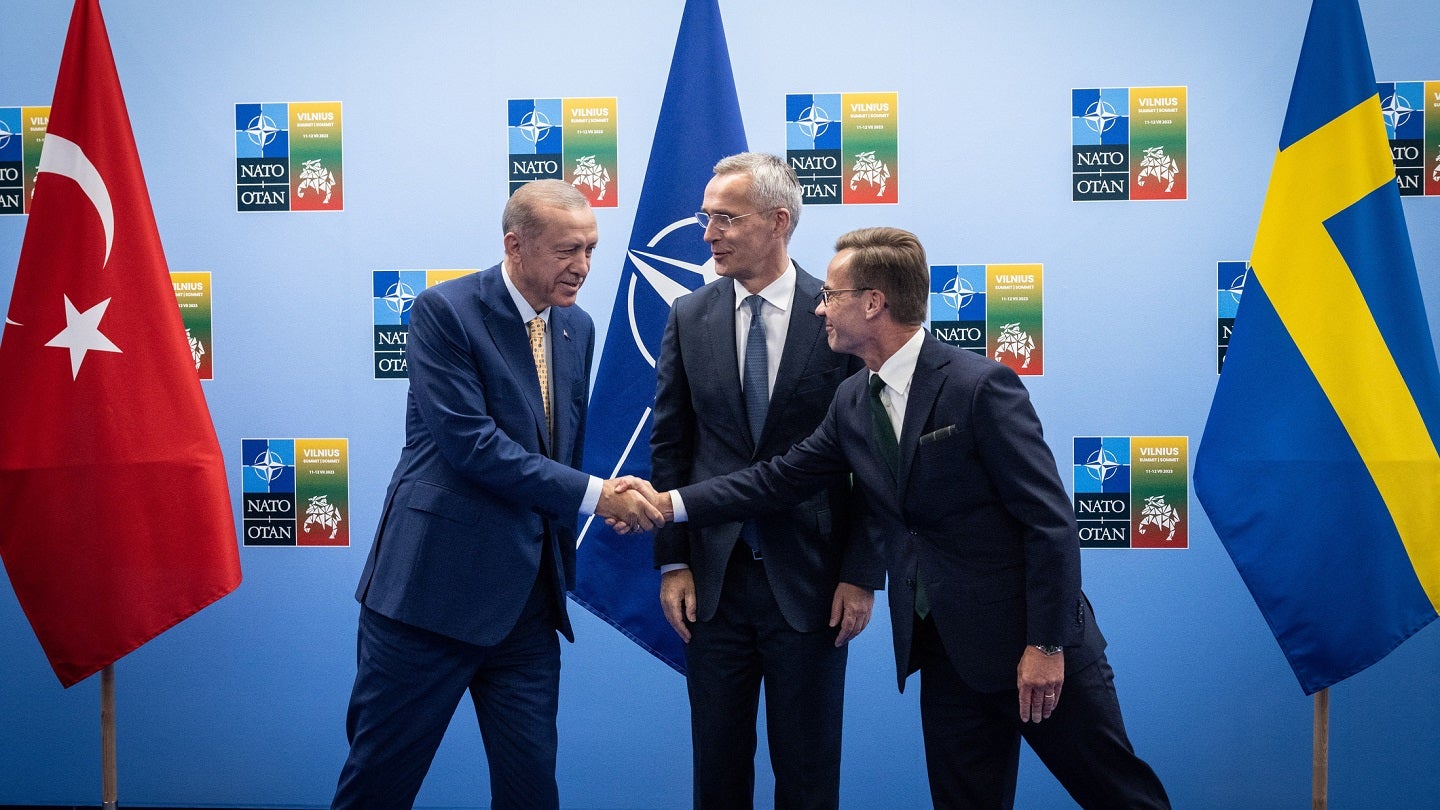
Nato member state Turkey has obtained a raft of concessions and pledges from aspirant Sweden, in order to drop its long-held opposition to Stockholm’s accession to the Alliance, first submitted over one-year ago in July 2022.
Both Sweden and Finland, ostensibly neutral but western-aligned states, were invited to apply for Nato membership in June last year following Russia’s large-scale invasion of Ukraine amid concerns within northern and Baltic states of further aggression from Moscow. In April this year Finland formally joined Nato as its 31st member.
However, Turkey and fellow Nato member Hungary objected, for reasons both aligned and separate, to Sweden joining the Alliance. Both Turkey and Hungary have strong ties to Russia, with all three countries led by populist strongmen figures.
Turkey in particular was keen to extract favourable terms for Sweden’s accession to Nato, a clear game of realpolitik being played by a state that balances its priorities depending very much on what its regime perceives to be in Ankara’s national interest.
In a Nato release published on 10 July, the concessions and pledges won by Turkey to drop its objections to Sweden’s membership hopes were laid bare, detailing huge security, economic, and political gains.
According to the release, since the last Nato summit, Sweden and Turkey have “worked closely together to address” what were described as Ankara’s “legitimate security concerns”.
How well do you really know your competitors?
Access the most comprehensive Company Profiles on the market, powered by GlobalData. Save hours of research. Gain competitive edge.

Thank you!
Your download email will arrive shortly
Not ready to buy yet? Download a free sample
We are confident about the unique quality of our Company Profiles. However, we want you to make the most beneficial decision for your business, so we offer a free sample that you can download by submitting the below form
By GlobalDataAs part of the process, Sweden has amended its constitution, changed its laws, expanded its counter- terrorism cooperation against the PKK (an ethnic Kurdish movement Turkey considers a terrorist organisation), and resumed arms exports to Turkey, all steps set out in the Trilateral Memorandum agreed in 2022.
Turkey’s gains do not stop there, with the Nato release adding that Sweden and Turkey also agreed to “step up economic cooperation” through the Turkey-Sweden Joint Economic and Trade Committee (JETCO).
A further, final, pledge could still be seen as the icing on the concession cake, with Sweden to “actively support efforts to reinvigorate turkey’s EU accession process”, including modernisation of the EU-Turkey Customs Union and visa liberalisation.
Turkey can still scupper the deal
Commentary from the Atlantic Council think tank also pointed to the gains made by Turkey in its stance against Sweden, with Rich Outzen, nonresident senior fellow and former military and civilian adviser in the US State Department, describing it as a “typical [Turkish President Recep Tayip] Erdoğan move to take a maximalist position in a high-stakes negotiation, show readiness to walk, then compromise for progress on key demands”.
There are also suggestions that Turkey could have won a rumoured concession from the US to acquire new F-16 fourth-generation fighters, which would be seen a major coup following Ankara’s dismissal from the US-led F-35 stealth fighter programme in 2019 amid concerns over the Turkish military’s use of the Russian S-400 air defence system.
However, there is a further hurdle still to be negotiated as the agreement on Sweden’s Nato accession is being sent to Turkey’s parliament for approval. Having recently won a general election, President Erdoğan, who has rewritten the country’s constitution to further cement his grip on power, will be able to potentially gain further concessions from Nato and Sweden.
Christopher Skaluba, director of the Scowcroft Center’s Transatlantic Security Initiative and former principal director for European and NATO policy at the US Defense Department, said there was a “non-zero change” that some intervening circumstance, such as another public Quran burning in Sweden, could “serve as a pretext” for derailing the process again.
“I want to be optimistic, but worry that I have seen this movie before,” Skaluba stated.



